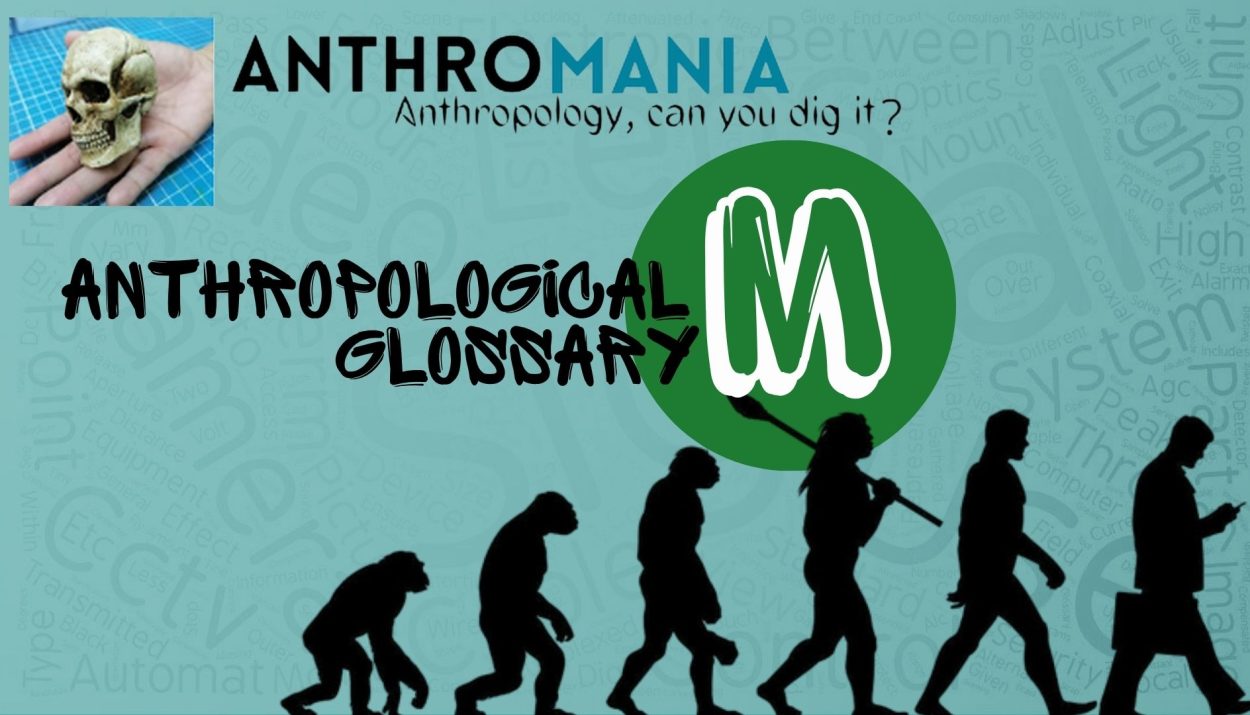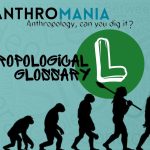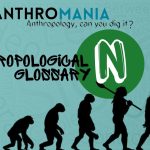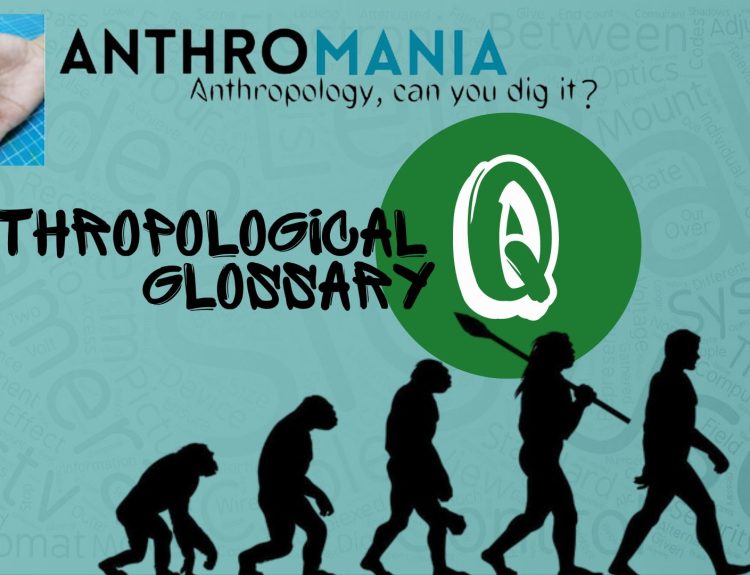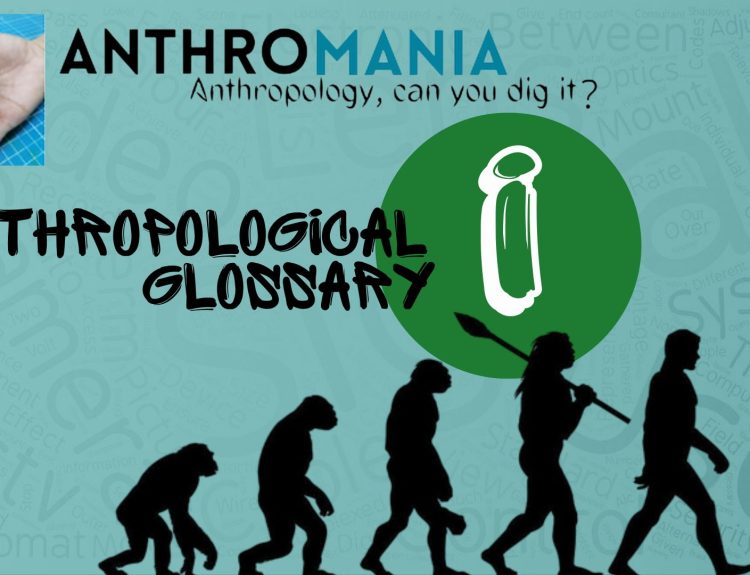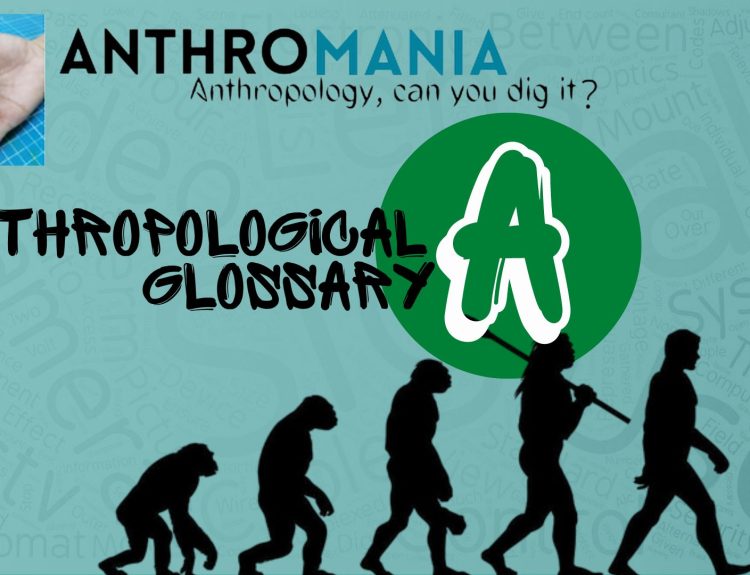Explore the Anthropological Glossary (Letter M) to learn about important anthropological terminology and concepts. These phrases cover a wide range of topics related to anthropological research, such as the understanding of human life and society, cultural practices, linguistic analysis, and archaeological techniques.
Magic: Belief in supernatural powers or forces that can be harnessed or manipulated to achieve specific outcomes. Magic often involves rituals, spells, and charms.
Market Exchange: The buying and selling of goods and services in a competitive marketplace, which is an important aspect of economic anthropology.
Marriage Exchange: The transfer of goods, services, or wealth between the families of individuals getting married. Different societies have various forms of marriage exchange, such as dowry and bride price.
Material Culture: The physical objects, artefacts, and technologies created and used by a society. It encompasses everything from tools and clothing to architecture and artwork.
Maternal Kinship: The network of relationships and social ties based on a person’s mother and her relatives.
Maternal Mortality Rate: An important demographic indicator in anthropology, it measures the number of maternal deaths per 100,000 live births in a given population. It is used to assess the health and well-being of women during childbirth.
Matriarchal: A social system or culture where women hold primary authority, leadership, and decision-making roles in families, communities, or societies.
Matrilineal descent: Descent is traced through the female line from mother to daughter.
Matrilocal/ Uxorilocal: After marriage, the couple lives in the wife’s mother’s house.
Mechanical Solidarity: A concept introduced by Emile Durkheim, referring to the social cohesion found in pre-industrial, traditional societies, where individuals have similar values, beliefs, and activities that bond them together.
Medical anthropology: A subfield of anthropology that studies how cultural beliefs, practices, and social structures influence health, healthcare systems, and the experience of illness.
Megalith: Large, often ancient, stone structures or monuments, such as Stonehenge, that have cultural, religious, or astronomical significance. They are subjects of study in archaeological anthropology.
Meiosis: In biological anthropology, this refers to the process of cell division that reduces the chromosome number by half, resulting in the formation of gametes (sperm and egg cells).
Melanesia: A region in the Pacific Ocean, encompassing numerous islands, including Papua New Guinea, Fiji, and the Solomon Islands. It is known for its cultural diversity and is an area of interest for anthropologists.
Meme: A term coined by Richard Dawkins, it refers to an idea, behaviour, or cultural practice that spreads within a culture. Memes can be transmitted through imitation, and they play a role in cultural evolution.
Mesolithic: A period in human prehistory between the Paleolithic (Old Stone Age) and the Neolithic (New Stone Age), characterized by the development of more advanced tools and subsistence strategies.
Microaggressions: Subtle, often unintentional acts or expressions of discrimination, prejudice, or bias that can have a harmful impact on marginalized individuals or groups.
Middle Paleolithic: A sub-division of the Paleolithic period characterized by the emergence of more advanced stone tools, such as the Mousterian tools associated with Neanderthals.
Migration: The movement of individuals or groups from one place to another, often across borders or regions.
Mitosis: A cell division process in which a single cell divides into two identical daughter cells, each with the same number of chromosomes as the parent cell. It’s crucial for growth, repair, and asexual reproduction.
Mobility (Social): The ability of individuals or groups to move up or down within the social hierarchy or class system. Social mobility is an important concept in the study of social inequality.
Modernization: a broader process that encompasses social, economic, and political development, including industrialization and democratization, while often influenced by Western ideas.
Moiety: A kinship system used in some cultures, where the society is divided into two primary social groups.
Moksha: The ultimate and most profound Purushartha, signifying the ultimate goal of liberation from the cycle of reincarnation, achieving spiritual enlightenment and union with the divine, transcending earthly desires and suffering.
Monogamy: A marriage system in which an individual has only one spouse at a time. This is in contrast to polygamy, where an individual may have multiple spouses simultaneously.
Moral Panic: A concept in anthropology and sociology that describes a societal reaction to a perceived threat or deviant behaviour that leads to exaggerated fears and moral outrage.
Moral Relativism: The belief that morality is not universal and absolute but is shaped by cultural, social, and individual perspectives. Moral relativism asserts that different cultures may have their own moral standards.
Mores: Social norms and rules that are considered highly important for the welfare of a society. Violating mores often results in strong societal disapproval.
Multi-Culturalism: A social and political ideology that promotes the coexistence of diverse cultural groups within a single society, emphasizing the value of cultural diversity and equal rights for all.
Multi-sited Ethnography: A research approach in anthropology that involves studying a particular cultural phenomenon in multiple locations or contexts, recognizing that cultures and practices are not confined to a single place.
Mummification: A preservation process in which the body of a deceased person or animal is treated to prevent decomposition.
Museology: The study of museums and the curation, preservation, and management of cultural artefacts and collections.
Museum: An institution dedicated to collecting, preserving, and displaying objects of cultural, historical, scientific, or artistic significance.
Mutation: A genetic process involving a change in an organism’s DNA sequence. These changes can occur naturally or be induced by external factors like radiation or chemicals.
Myrmecology: The study of ants, including their behaviour, ecology, and social structure. This subfield often overlaps with entomology (the study of insects).
Myth: Traditional stories or narratives that convey the beliefs, values, and worldviews of a culture. Myths often have a sacred or religious significance and may explain the origins of the world or the behaviour of gods and heroes.


